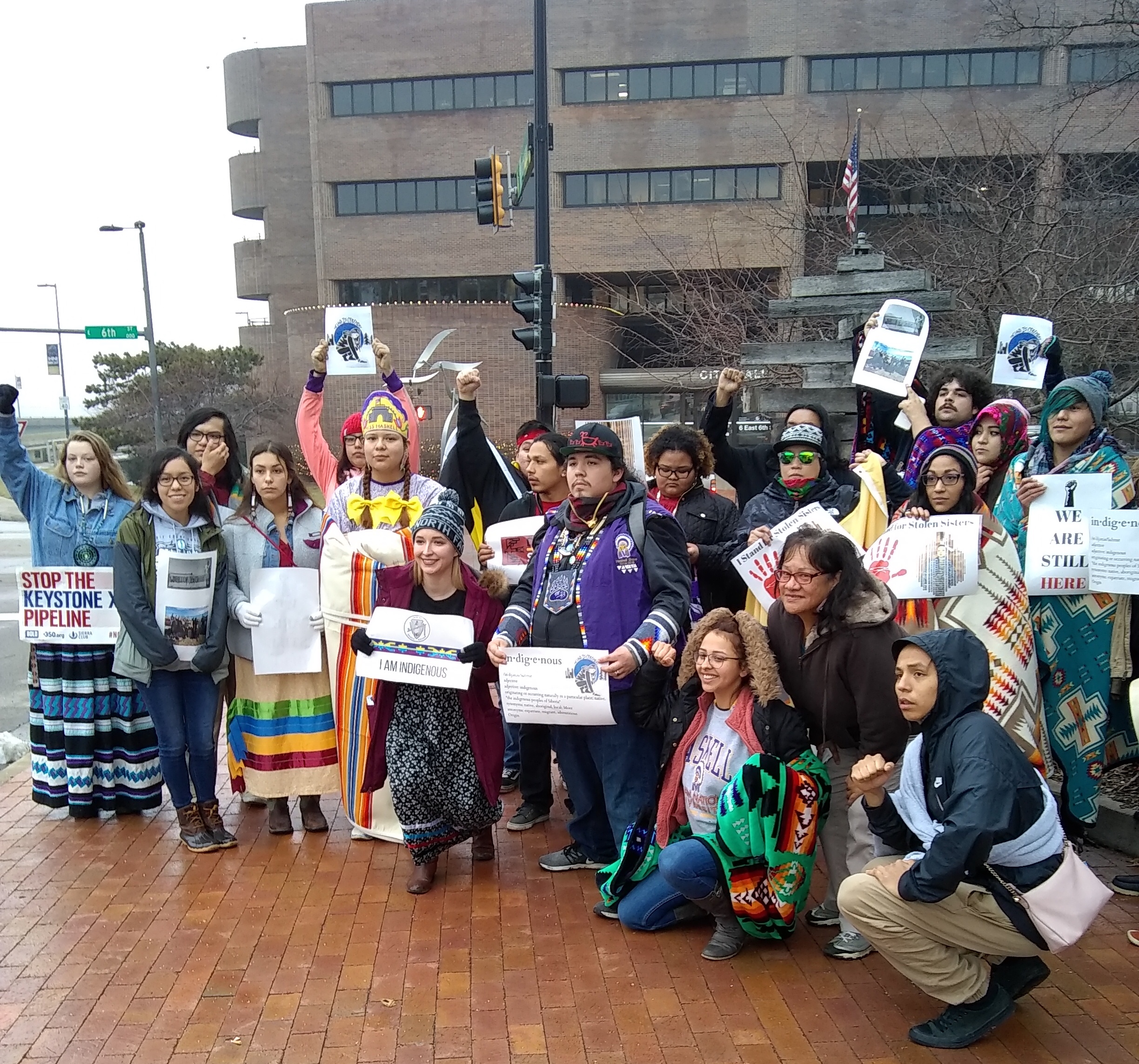
A crowd of student activists gathered in front of the Haskell Cultural Center and Museum in solidarity with the nationwide Indigenous People’s Movement, whose goal is “uniting the Indigenous peoples across the World to stand together to bring awareness to the injustices affecting Indigenous men, women and children from North, Central and South America, Oceania, Asia, Africa and the Caribbean”.
Haskell President, Dr. Daniel Wildcat spoke briefly, thanking the students for braving the cold weather to bring attention to issues that are all too often ignored, saying that, although marches like this are sometimes dismissed as purely symbolic, “We know better. Symbols matter. Words matter. And your actions matter.”
A prayer was said, songs were sung, then the protesters began the miles long march to city hall. Shouts of “No more missing sisters!” and “This is what democracy looks like!” could be heard as the protesters marched down Massachusetts street, through the heart of downtown Lawrence.
The march wasn’t about any one issue, but rather the onslaught of issues that plague Indigenous communities locally and globally. Because of this, the march meant different things to different people.
Sean Parrish, editor of the Indian Leader, stressed the importance of Native media, saying, “It is important for us to get our voice out there. And for us to tell our own story. Because if we don’t, our stories can get disrupted through the lenses of their (observers’) world views.” A sentiment that is made even more relevant considering that most of the national media attention given to the Indigenous People’s march in Washington D.C. failed to mention any of the issues being protested and chose to instead focus entirely on an encounter with a group of High School students that occured at the end of the March.
Haskell Alumni, Rain Charger spoke about the meaning that can be found in solidarity and the connections that one can make at Haskell. “If we are talking about Indigenous voices today; know that you are valid. That you matter…we are at Haskell, this is the only place where this happens, in the world. Where so many tribes commingle. Remember that. Use that to your advantage.”
Student senate president Lindsey Robinson, who helped organize the event, made a passionate speech about many of the issues facing Native peoples today. She brought attention to the thousands of missing and murdered Indigenous women in North America whose cases have gone unsolved. As well as police violence against Natives; according to data from the Centers for Disease Control and Prevention, Native Americans are killed in police encounters at a higher rate than any other racial or ethnic group.
She talked about the Dakota Access Pipeline protests that occured on the Standing Rock reservation in South Dakota, noting that the president’s “first order of business” upon assuming the role as commander in chief, was to sign two executive orders to move forward with the construction of the Dakota Access pipeline and the Keystone XL pipeline, ending the environmental impact assessment associated with those projects as well as the public comment period, a massive blow to one of the largest Intertribal protests in modern history.
She also decried the separation of thousands of children from their families that has occured at the Mexican border as part of a new immigration strategy proposed by the current administration. These children are then kept in fenced in areas that have been described as cages.
Lastly she addressed the representation of Native american history in public education, saying, “We get one page in a history textbook for five hundred and twenty seven years of genocide and assimilation.”
After everyone had spoken, many of the protesters began the long, cold walk back to Haskell.

